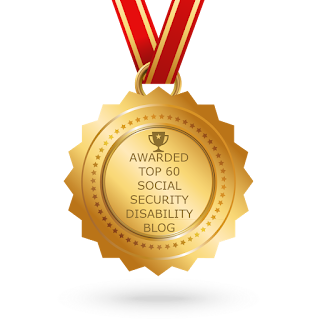YOU EARN SSDI BENEFITS - THEY ARE NOT WELFARE.
I speak truthfully when I tell people that Social Security disability is not welfare. You paid for it, you earned it. Claim it. Here's why the Social Security disability program is not welfare: 1) You paid FICA tax every day you worked. FICA stands for "Federal Insurance Contribution Act." It's actually a Social Security tax. It came out of every paycheck you earned. 2) You were forced to purchase Social Security disability insurance (SSDI) by the US government. You were not given a choice. This is a government sponsored disability insurance plan, just like you would purchase from an insurance company. The only difference, it was mandatory--you were forced to buy it, no choice. 3) The Social Security program is self-financing. It is not paid for out of the general US treasury. FICA taxes come out of your paycheck, are matched by your employer, and go into a special trust fund. When you become dis...


